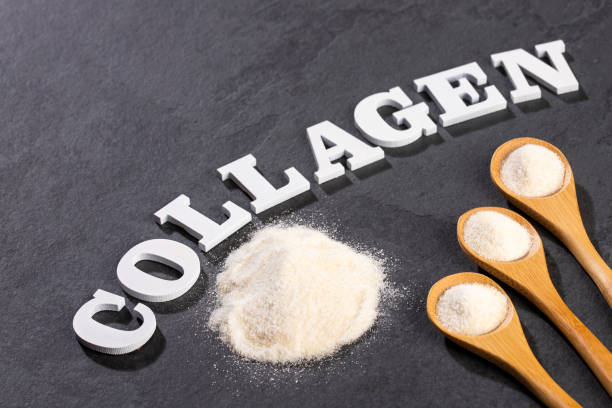Aspartame, an artificial sweetener used widely in diet colas, breakfast cereals, ice creams, confectionaries, toothpaste, and even cough syrups, looks all set to be declared as a possible carcinogen’ by the International Agency for Research on Cancer (IARC) the next fortnight. IARC is the cancer research agency of the World Health Organization (WHO).
Until now, the popularity of aspartame has remained largely unaffected by the health concerns raised over its use. In fact, it is one of the most preferred sugar substitutes among people with diabetes and those looking to manage their weight.
Aspartame is used as a sugar substitute in beverages like Diet Coke. Celebrities such as Elon Musk have tweeted about their ‘love’ for this beverage in the recent past.
In May 2023, the WHO tweaked its guidelines against the use of artificial sweeteners — mainly aspartame and acesulfame K, both major ingredients in major diet cola variants — saying they could lead to diabetes and obesity.
The parent report for the guidelines also referred to the possible cancer-causing impact of some artificial sweeteners.
Dr. Banshi Saboo, endocrinologist and chair-elect (South Asia), International Diabetes Federation (IDF), told Happiest Health that the latest news reports are alarming.
“Another issue with these artificial sweeteners, including aspartame, is that they are often very addictive in nature and make the person keep consuming such food and beverages, leading to serious health issues,” Dr Saboo adds. “The health sector and policymakers should wake up to these warnings and have the resolve to take appropriate measures to regulate or ban such harmful substances.”
What is aspartame?
According to Maharashtra-based Anand Pharmaceuticals, the Indian manufacturer of aspartame, the artificial sweetener is 200 times sweeter than sugar and is a commonly used sugar substitute in food and beverages. The firm says aspartame is a methyl ester of the aspartic acid and phenylalanine dipeptide with the trade names NutraSweet, Equal, and Canderel.
According to the priority recommendation report (2020-24), the IARC advisory group, aspartame, is currently authorized for use in more than 90 countries. It has been listed for re-evaluation for possible health risks on a high-priority basis within the next two and a half years.
According to the US Food and Drug Administration (FDA), aspartame [L-aspartyl-L-phenylalanine methyl ester] is a dipeptide composed primarily of two amino acids: phenylalanine and aspartic acid.
Aspartame as ‘a possible carcinogen’
The IARC has collected and screened references from more than 7,000 research articles as part of its ongoing risk assessment and hazard identification study. As many as 1,300 research studies have also been passed on to working groups to conclude on July 14.
Recent research based on a cohort study conducted in France involving 102,865 individuals to analyze the link between artificial sweeteners (including aspartame) and cancer risk found indications that aspartame could lead to a higher risk of breast and obesity-related cancers.
Another study was recently conducted in Spain to evaluate the link between aspartame usage and cancer, and the findings were published in the International Journal of Cancer in June 2023. The researchers assessed data of as many as 1,881 people with colorectal cancer, 1,510 suffering from breast cancer, 972 individuals with prostate cancer along with 351 and 109 people suffering from stomach cancer and chronic lymphocytic leukemia (CLL), respectively, from the Spanish Multicase-Control (MCC-Spain) study. Since it was a population study and various parameters were involved, the conclusion was that though it might be debatable whether artificial sweeteners increased overall risk, they may pose a danger to people with some specific health conditions.
“Among people with diabetes, high aspartame consumption was associated with a higher risk of stomach cancer and a lower risk of breast cancer,” says Camille Lassale, assistant research professor and senior author of the paper along with Anna Palomar, postdoctoral researcher from The Barcelona Institute for Global Health (IS Global), Spain, in a joint email response to queries from Happiest Health.
Five decades of alleged coverup
In 1965, James M Schlatter, a chemist at the pharmaceutical company GD Searle & Co, discovered aspartame when he was working on an anti-ulcer drug and accidentally licked his finger — only to realize that the chemical tasted like natural sugar, but much sweeter. Searle soon marketed aspartame under the brand name Nutra Sweet.
In 1974, the FDA initially approved aspartame as a tabletop sweetener.
However, objections were raised, mainly by Prof Dr John Olney, psychiatrist at Washington University of St Louis, and James S Turner, co-founder of the Centre for Study of Responsive Law, also in Washington. They said certain amino acids in aspartame could lead to brain tumors, intellectual disabilities, and endocrine dysfunction. They added that aspartame could severely affect those with phenylketonuria (PKU), a genetic disorder that prevents the metabolism of phenylalanine, which is one of the amino acids in aspartame.
Later, an FDA task force constituted in 1975 ruled against the evidence submitted by Searle. This led to the FDA canceling its approval to market aspartame in the US.
However, the FDA called for further investigation, probed the findings of three research studies on its own, and jointly probed the findings of 12 other aspartame-based research studies.
In 1981, it finally gave clearance to market aspartame in the US — with a 40mg/kg body weight as the acceptable daily intake.
In 1983 and 1984, aspartame got approval to be used in carbonated beverages and multivitamins, respectively. In the subsequent years, it was allowed to be used in cereals and candy.
Some objections filed in recent years were overturned due to lack of evidence.
Donald Rumsfeld and Big Pharma
Interestingly, the CEO of GD Searle & Co during this period (1977-1985) was Donald Rumsfeld, who was twice the US Secretary of Defense (1975-77 and 2001-06).
Harvard Business School lists securing this approval for aspartame as Rumsfeld’s biggest achievement as a business leader, which catapulted Searle to a $120 million profit company in 1982.
In 1985, GD Searle & Co merged with Monsanto. In 2000, after a couple of further mergers, it became an entity called Pharmacia, which joined with Pharma giant Pfizer in 2003.
Pfizer also manufactures multiple essential drugs, including those for various cancer variants.
Warning signs on cans
Diet Coke cans with aspartame still bear the warning sign (pictured above) that the contents include aspartame and acesulfame potassium and are not recommended for phenylketonuria, children, and pregnant and lactating mothers.
The risk of phenylketonuria from aspartame was one of the major contentions raised by the initial petitioners, Dr Onley and Turner.
Further studies required
Medical experts say one of the most crucial aspects would be to understand whether it is conclusively proven that aspartame is directly linked to cancer.
“Most of the cohort studies use observational data, and so more studies should be done to ascertain whether someone who consumes aspartame developed cancer or whether the person was already predisposed to cancer due to genetic reasons,” says Dr Srinath Bharadwaj, consultant, medical oncology, Apollo Cancer Centres, Hyderabad.
Dr Bharadwaj adds that a lot of items — including even wood dust — have been classified as possible carcinogens.
“Personally, I would say to stick to natural food items and avoid artificial stuff including sweeteners,” he adds.
Dr Lokesh Viswanath, head of the Department of Radiation Oncology, Kidwai Memorial Institute of Oncology, Bengaluru, says that the final report from WHO and concerned agencies is yet to be submitted.

